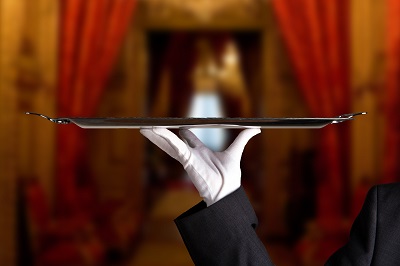A Tip to the Right Hemisphere

I agree with Modern Drunkard Magazine's observation that, if you can't afford to tip the bartender, you can't afford to drink in a bar. Just buy a six-pack and stay home.
Me? I prefer to stay home with the six-pack, but I love bars. When I gained access with my brother's fake ID when I was 14 (just kidding . . . I was 18), I felt like I had sneaked into hallowed grounds. I walked in and drank frequently but with deference. When I became legal at 21, I walked in and drank with confidence. As I aged, I walked in and drank with comfort.
At all stages, I left the bartender a tip. When I was 18, it was probably partly because I appreciated him not questioning how I could be 22 when I looked like I was 15. Once I became older, I probably did it because that's what you do. You could stiff the bartender (and the slow ones, I did, especially if they were slow because they were chatting with co-workers . . . a thing that still strains my limited supplies of holiness), but that's a sign of barbarism.
But to haphazardly toss a dollar or two on the bar as you walk away with your drink? That shows savoir-faire.
It also shows a level of detachment from your money, which means you're wealthy: you have plenty of money compared to your wants. You might, relative to other people, have a lot of money or very little, but compared to your wants, you must have plenty, so you toss the dollar or two on the bar with barely a nod and walk away.
Few things ennoble like tossing a dollar or two on the bar as you walk away with your drink.
Also worth pointing out: Few things are more right-hemispheric.
Economists and sociologists have studied the habit of tipping, especially in America where tipping has gotten out of hand, both in quantity (25% is now the norm?!) and in situations (the convenience store checkout?!).
The bottom line is, no one can figure out why we tip.
It's not to get better service. Studies, for instance, show we tip when there's virtually no chance we'll see the bartender or waitress again.
We tip for no apparent reason and that's what drives the academics insane.
There is simply "something about" tipping that transcends analysis.
It transcends the left hemisphere's arena of preying and grasping.
It therefore transcends academia, foiling economists, sociologists, and all other reductionists.
So when you go to the bar, leave a dollar or two for the bartender with every drink. The alcohol flips the left hemisphere over your mental shoulder, onto the ground, freeing your right hemisphere to consider things above the quotidian. The pointless tipping is a kick to the left hemisphere's ribs.


